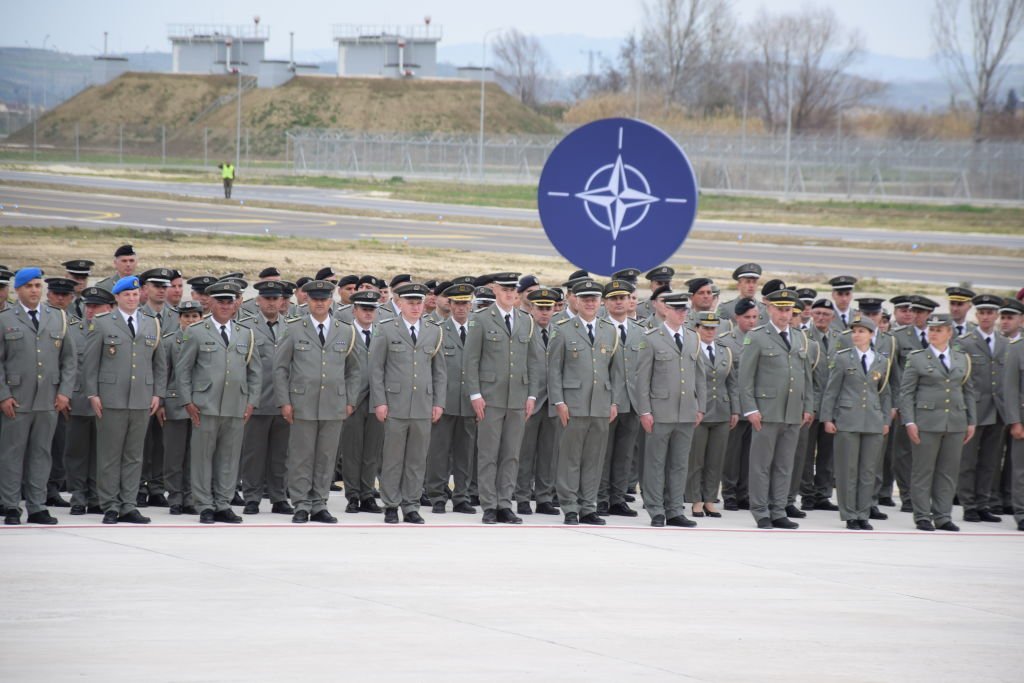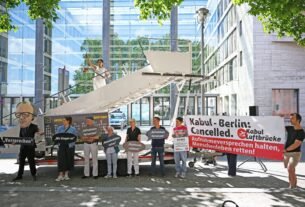Ioannis Armakolas is Director of the Hellenic Foundation for European & Foreign Policy (ELIAMEP). Ana Krstinovska is senior researcher at ELIAMEP’s ‘thinknea’ initiative.
While the European Union fine-tunes budget frameworks and debates procedural reforms, other powers are moving swiftly into the continent’s geopolitical blind spots.
Last month Chinese and Serbian special forces conducted a joint military exercise in China – a first of its kind. Called Peace Defenders-2025, it sends a clear message: where Europe is hesitant or absent, other powers are eager to fill the vacuum, not just with words, but with concrete offers.
Serbia, still officially on the EU accession track, is already flying Chinese drones and operating Chinese missile systems. None of this happened overnight. It has come after years of growing disenchantment with a European integration process perceived in the region as stalled and half-hearted.
The EU’s failure to match its enlargement rhetoric with action has pushed the Western Balkans to open doors to players like China, and in some cases Turkey, that are more than willing to invest, equip, and entrench themselves, even in the most sensitive of sectors –defence.
A recently published report underscores that the region has emerged as one of Europe’s most underappreciated defence assets. In Ukraine’s hour of need, in peacekeeping operations from Africa to the Mediterranean, and in critical defence industries capable of supplying what the EU struggles to produce, the Western Balkans are stepping up. The question is no longer whether they are ready for Europe, but whether Europe is ready to recognize what they bring to the table.
Since Russia’s full-scale invasion of Ukraine, Western Balkan states have acted with resolve and responsibility. North Macedonia’s donations of tanks, helicopters, and large quantities of ammunition to Kyiv make it one of NATO’s most generous donors per capita.
Albania and Montenegro have also demonstrated tangible solidarity, backed with sizeable military, financial and humanitarian aid. Even Serbia, while officially maintaining neutrality and declining to align with EU sanctions on Russia, has quietly enabled the transfer of over €800 million worth of Serbian-made ammunition to Ukraine.
These contributions have largely flown under the radar. Unlike larger EU states, the Western Balkans don’t always get the headlines. But the region’s actions have matched or even exceeded those of some EU member states. And it’s not just about Ukraine. Western Balkan troops serve in EU missions in Mali, Somalia, and the Central African Republic.
Albania and North Macedonia are regular contributors to EUFOR Althea in Bosnia and Herzegovina. Serbia provides medical teams and military police for UN peacekeeping missions from Lebanon to the Congo, and is among Europe’s top personnel contributors to the UN. These deployments are often small in number, but highly specialized – trainers, medics, logistics officers – and they come with strategic impact and deep commitment.
The region’s readiness is not limited to its soldiers. Its industrial capacity, rooted in the legacy of Yugoslavia’s self-reliant defence model, remains a largely untapped advantage for Europe. Bosnia and Herzegovina alone can produce up to 500,000 artillery shells per year. Serbian defence industries manufacture NATO-standard ammunition, including armoured vehicles, artillery systems, and increasingly, unmanned aerial systems that they export to over 50 countries.
These products are not only interoperable with European and Ukrainian systems, but also cost-effective and geographically closer than other suppliers. In a high-intensity war of attrition, where speed, volume, and price matter as much as precision, this is the kind of scalable production Europe urgently needs.
Yet the EU has so far failed to harness this capacity. Enlargement fatigue, bureaucratic hurdles, and political caution have stalled the Western Balkan’s EU accession path for far too long. Now the EU must recognise that integrating these countries is not just about completing a political project. It’s about strengthening the Union’s capacity to defend itself, to act with autonomy, and to project stability in an increasingly contested geopolitical space.
Enlargement is no longer a matter of benevolence. It is a matter of strategy.
If Europe wants to be taken seriously as a global actor, it must match ambition with action. That means accelerating the accession of those who already act like members, contribute like allies, and commit like partners.
The time to bring the Western Balkans fully into the EU is not sometime in the undefined future. It is now. Because in defence, in deterrence, and in solidarity, these countries have already joined. It’s Europe that needs to catch up.





